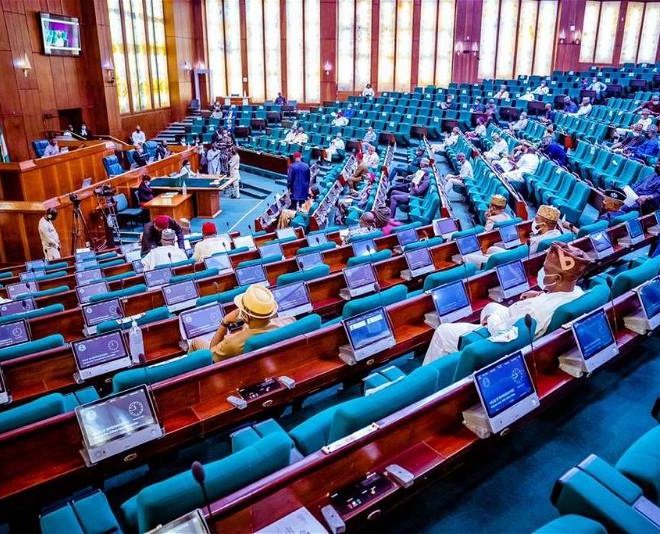The Nigerian House of Representatives Minority Caucus has expressed support for the Federal Government’s efforts to reform the nation’s tax system, while simultaneously advocating for a thorough review of certain provisions within the proposed tax reform bills. President Bola Tinubu presented these four bills to the National Assembly in early September 2024, based on recommendations from the Presidential Committee on Fiscal Policy and Tax Reforms. The bills aim to establish a comprehensive fiscal framework, clarify the legal basis for taxation, create a new revenue service to replace the Federal Inland Revenue Service, and establish a tax tribunal and ombudsman. While acknowledging the positive intent behind the reforms, the Minority Caucus has raised concerns regarding specific aspects of the proposed legislation.
One key point of contention revolves around the proposed N50 million Company Income Tax exemption. The Minority Caucus Leader, Kingsley Chinda, argues that this threshold is inadequate given the current inflationary pressures on businesses. He suggests raising the exemption to N100 million to reflect the economic realities facing companies. Beyond the exemption threshold, Chinda emphasizes the need to broaden the tax base rather than simply increasing existing tax rates. He advocates for bringing more individuals and entities into the tax net and addressing tax evasion and avoidance before resorting to higher taxes. This approach prioritizes effective tax collection over increasing the burden on existing taxpayers. Chinda urges his colleagues in the National Assembly to leverage the opportunity presented by these bills to modernize Nigeria’s tax laws and align them with contemporary economic conditions.
Further concerns have been raised regarding the process by which these tax reforms are being pursued. Mansur Soro, a member of the House, highlights the contentious nature of the bills and the necessity for extensive stakeholder consultation. He points out that previous tax law reviews, such as the Finance Bill of 2020, involved input from state governors through the National Economic Council. Soro argues that the current bills also impact state finances and warrant similar consultation with subnational governments. He warns against setting a precedent of bypassing the NEC in economic policy discussions, emphasizing the importance of inclusivity and national unity in such matters. While Soro acknowledges the merits of certain provisions within the bills, such as the tax-free benchmark and the centralization of federal revenues, he stresses the need for stakeholder input before proceeding with legislative debate.
The debate surrounding the tax reform bills also highlights the importance of parliamentary procedure. Oluwole Oke, another House member, emphasizes the legality and propriety of the executive branch proposing such legislation. He underscores the established legislative process, which includes gazetting the bills, first reading, and subsequent second reading. Oke advocates for thorough debate on the principles, merits, and demerits of the bills, followed by a voice vote. He calls for open discussion and consideration of public and constituent input before taking a final position on the legislation. This emphasis on procedural due process underscores the democratic principles underlying the legislative process. It also reinforces the role of elected representatives in channeling the voices of their constituents.
The proposed reforms encompass a wide range of changes, including a new name for the revenue collection agency, shifting from the Federal Inland Revenue Service (FIRS) to the Nigeria Revenue Service (NRS). This rebranding reflects a broader ambition to overhaul the entire tax system. The bills also aim to establish a clear legal framework for all taxes in the country, aiming to reduce disputes and enhance clarity for both taxpayers and tax authorities. The establishment of a tax tribunal and a tax ombudsman are further components of the proposed reforms, designed to streamline dispute resolution and ensure taxpayer protections. These changes represent a significant attempt to modernize and improve the efficiency and fairness of the Nigerian tax system.
In summary, the proposed tax reform bills represent a significant attempt by the Nigerian government to modernize and enhance the effectiveness of its tax system. While the intent behind the reforms has garnered support from various quarters, including the House of Representatives Minority Caucus, there are significant concerns regarding specific provisions and the process by which these changes are being pursued. The debate highlights the tension between the need for comprehensive reform and the importance of inclusivity, stakeholder consultation, and adherence to established legislative procedures. The discussions surrounding the tax-free benchmark, the broadening of the tax net, and the involvement of subnational governments underscore the complexities and sensitivities inherent in tax policy reform. As the National Assembly resumes its plenary duties, the debate on these bills promises to be a significant test of the government’s commitment to both fiscal responsibility and democratic principles.














